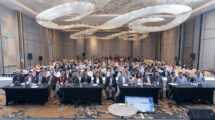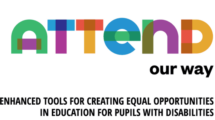Heather Flanagan is heavily engaged in the standards development community, and actively involved in international research and education identity management discussions. Heather has run identity management tutorials around the world, including at WACREN 2016 and APAN 42. CONNECT caught up with her to talk about her role as the RFC series editor which she has now carried out for the last six years.
Heather, can you give us a bit of background on the IETF and the RFC series?
The first RFC was published on 7 April 1969 – 48 years ago. This was the first of a series on computer networking in general, and on the Internet protocols in particular. The RFC series emerged from the US government-funded research efforts that created the ARPANET and later the Internet. When the Internet Engineering Task Force (IETF) and its sister organisation the Internet Research Task Force (IRTF) were formed in the mid-1980s, RFCs became the primary publication vehicle for IETF publications, which includes technical standards, best practice documents, informational material, and descriptions of experimental efforts. Today the IETF meetings have a regular attendance of about 1500 people from all over the world, with the next IETF meeting coming up from 16 – 21 July in Prague. The amazing thing is the continuity in the community, with some attendees coming to meetings for the last 30 years.
So, what is your role?
It is important to me to support the open development process and the internationalisation of protocols. The role of the RFC Editor in making RFCs accessible to engineers and organisations from around the world is a very important part of what we do. One major pragmatic, but technically rather difficult step towards accessibility was taken just last December, when I published RFC7997 which introduces the use of non-ASCII characters in RFCs. While English remains the required language of the Series, the encoding of future RFCs will be in UTF-8, allowing for a broader range of characters than typically used in the English language. I also regularly interact with the W3C and NISO, ensuring that we are in line with the latest standards for digital publishing.
I saw the April Fools Day response to your RFC: “The Arte of ASCII: Or, An True and Accurate Representation of an Menagerie of Thynges Fabulous and Wonderful in Ye Forme of Character”
In the true spirit of the IETF community, April Fools RFCs are deeply embedded into our community´s culture! But seriously, the move away from ASCII was needed; we have to be practical! Back to what I do. I provide the executive oversight to the RFC Series, which includes the RFC Production Center and Publisher. The RFC Editor is NOT responsible for approving Internet Drafts; that is the responsibility of the contributing stream (such as the IETF and the IRTF). I work with the editorial team and the community to ensure that an approved draft is turned into an RFC ready for comments and discussion in the relevant tracks. Over the years, the number of published RFCs has stabilised to about 350 per year. Normally, we can turn an approved draft into an RFC within 6-8 weeks, but the standards process which leads to approval can take much longer as it is fully consensus driven. Not every Internet Draft becomes and RFC, and not every RFC is a standard.
What do you think have been the major changes and challenges in the Internet technical community, including the IETF, over the years?
The Internet is a constantly evolving, maturing creation, and it is important that a diverse set of experiences be brought to the standards development process. Continuing with the IETF as an example for a global, open, volunteer-driven standards development organisation, new people from a variety of backgrounds are always needed to strengthen and enrich the standards development processes. Encouraging diversity is important so that the standards cover all the necessary use cases. I think that diversity comes with invitation and openness, as well as mentoring and coaching. The appointment of women to almost all of the major positions in the organisation is certainly one of the more significant changes we have seen in recent years. A real challenge for the IETF is maybe a similar challenge to what GÉANT experiences: being an inherently consensus driven community in a multimillion dollar competitive business as the Internet is today. And talking about GÉANT, NRENs have a role to play in the development of RFCs and standards!
New people are always welcome, as the IETF is completely open to newcomers. There is no formal membership, no membership fee, and nothing to sign. We even have a mentoring programme to aid the integration. The July meeting in Prague is particularly well suited to GÉANT attendees!
One last question, Heather, as this is our TNC17 issue of CONNECT – what are you expecting from your week in Linz?
This is my turn to be a part of making the Internet better! I am not an engineer, but everyone – even non-technical people – has something to offer. I am looking for groups that need help organising in order to make progress on their ideas, and I am looking to learn more about what ideas are coming to light.
This article was published in CONNECT Issue 25 – see the full magazine here








Add Comment